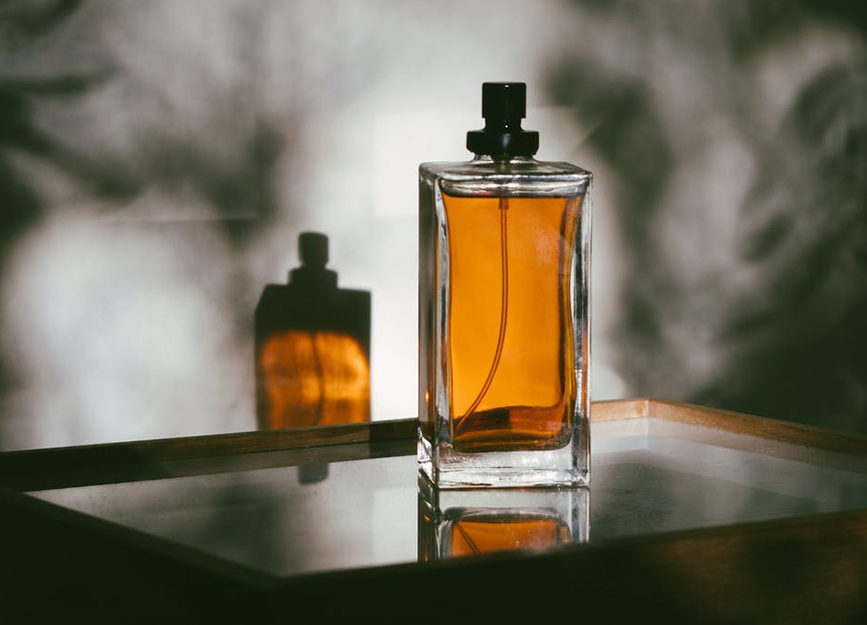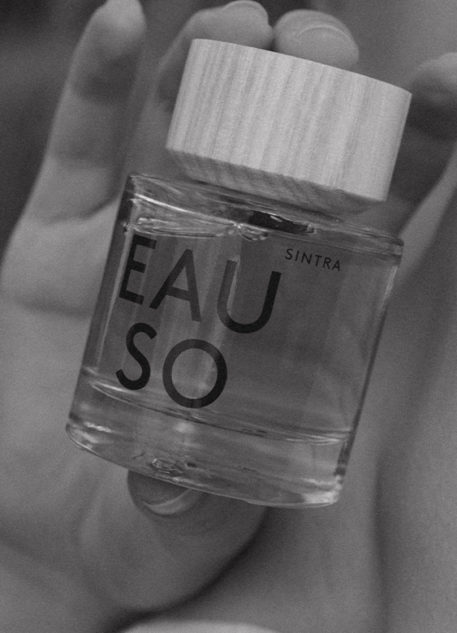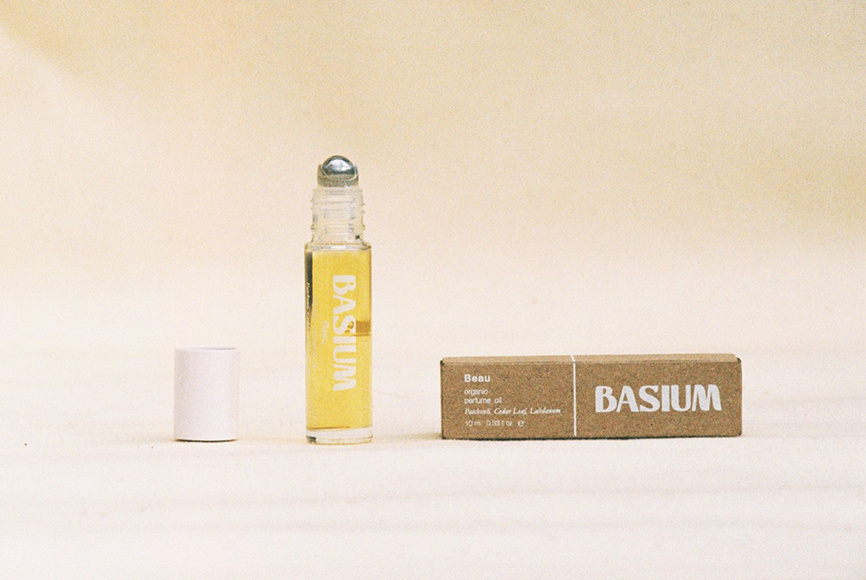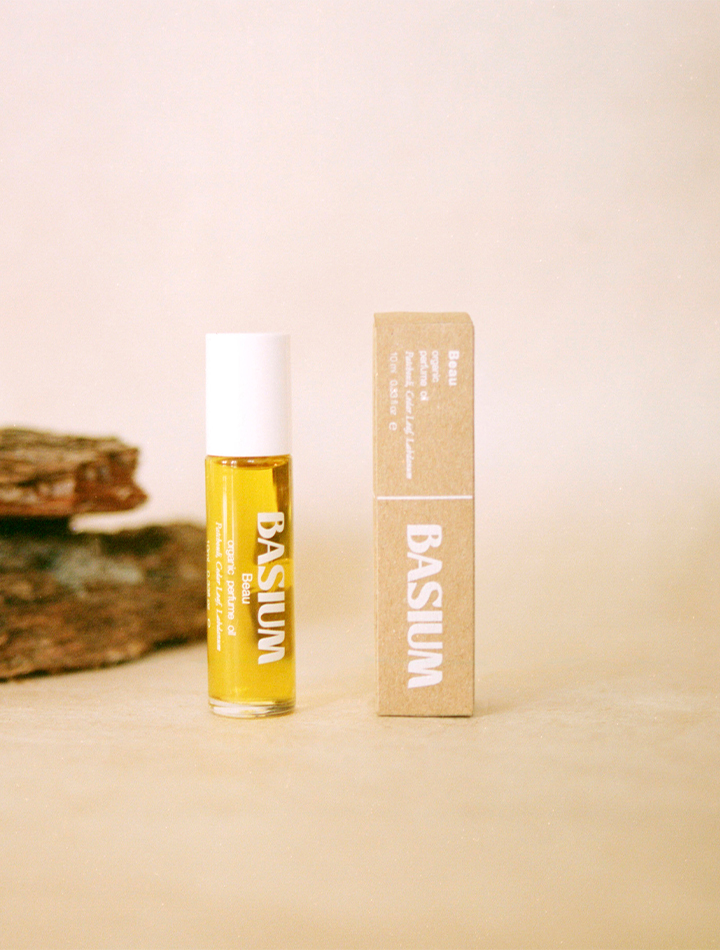

There can be 14 secret chemicals in perfumes that aren’t listed on the label.
Synthetic ingredients in perfumes can pollute waterways.




Eauso Vert - one of our favourite sustainable natural perfumes!
Beauty
Hidden Toxic Secrets: What’s in our Perfumes & Fragrances?
The third in our Detox Series, in this editorial we delve into the toxic secrets of the fragrance and perfume industry. Our daily spritzes of fragrance should not come with negative repercussions for our bodies or our planet. A floral scent should be made of pure flowers not synthetic fragrances – but sadly this is often the case. Keep on reading to learn more, and discover some of our favourite natural and sustainable alternatives that are completely safe to use!
There can be 14 secret chemicals in perfumes that aren’t even listed on the label. Plus, 80% of these chemicals haven’t even been tested for human safety.
A floral scent should be made of pure flowers not synthetic fragrances.
Perfumes, fragrances, and colognes are incredibly personal. Scents have the ability to evoke different emotions, feelings, and can make a huge difference in our moods. Everyone has a few daily scents and then that one perfume that is reserved for special occasions. Perfumes are like jewelry; they are an investment. Plus, they are a huge industry. Internationally, consumers spend around £30 bullion each year on perfumes and colognes [source: Chemical and Engineering News] .
Our daily spritzes of fragrance should not come with negative repercussions for our bodies or our planet. A floral scent should be made of pure flowers not synthetic fragrances. I have on many occasions been stuck on a bus or train carriage with someone wearing a strong perfume, that has immediately given me a migraine. I’m sure we’ve all experienced this at some point.
What are the health risks associated with conventional perfumes?
Did you know that there can be 14 secret chemicals in perfumes that aren’t even listed on the label?. Plus, 80% of these chemicals haven’t even been tested for human safety [source: Non Toxic Revolution]. Many of these ingredients have been linked to hormone disruption, allergic reactions, migraines, asthma, lung diseases, and more. Because these ingredients haven’t been tested or trialed, we really don’t know the long-term effects of using perfumes every day.
So, when you see the simple ingredient “fragrance” on perfumes and many other cosmetic products, that term is really concealing a long list of chemicals and preservatives. It is a loophole for brands so that they can hide the actual ingredient list so it cannot be copied by others. According to the International Fragrance Association there are currently 3,059 ingredients that could be concealed under the term fragrance. That leaves us unaware of what we are actually spraying onto our skin and inhaling. Remember the skin absorbs a lot of what we put onto it, so harmful chemicals and toxins can end up in our bloodstream.
One of the unclassified ingredients under the term “fragrance,” is phthalates, which helps products keep for a longer period. However, it is a known carcinogen that has even been banned in many countries. It has been linked to reduced sperm count, breast cancer, diabetes, and reproductive issues [source: Campaign for Safe Cosmetics]. Another ingredient is acetaldehyde, which all conventional perfumes contain since Chanel No.5 popularised its use. It is used to heighten the projection of a scent, so it travels far and wide from your wrist or neck. However, this ingredient can seriously damage kidneys and the reproductive, nervous, and respiratory systems.
The International Agency for Research on Cancer has classified acetaldehyde as a potential human carcinogen [source: Campaign for Safe Cosmetics]. There is also ethyl acertate, which is not only highly flammable but incredibly toxic when inhaled or sprayed near to the eyes. [source: Alitura Naturals]. Of course we are always inhaling perfumes!
Wastewater treatment plants can’t break down synthetic ingredients, so they travel into the rivers and oceans through sewage release. Lots of these synthetic chemicals are incredibly toxic for aquatic life and coral.
What about the harm caused to animals and our planet?
Like with all things we consume and use, they end up in our waterways. Synthetic fragrances that contain the ingredients I mentioned above, are commonly found in our waters. Wastewater treatment plants can’t break them down, so they travel into the rivers and oceans through sewage release [source: Nini Organics]. Lots of these synthetic chemicals are incredibly toxic for aquatic life and coral.
Musk is a very common ingredient within perfumes as it acts as a stabilizing agent. It can be produced naturally however lots of companies use musk that is derived from civets – small mammals who live in Asia and Africa. The process of extracting the musk requires killing civets. No animal should die for us to wear perfume.
Thankfully there are incredible companies making vegan, non-toxic, and organic perfumes that are good for us and our planet. See our favourites below!
ST. ROSE Artisan Fragrances
Founded in 2018 by Belinda Smith, ST. ROSE has created incredible scents with totally clean ingredients. They are 100% transparent and never hide behind the ingredient term “fragrance.” Check out their entire ingredient list here. Their packaging is completely eco-friendly and they do all they can to reduce their carbon footprint. They practice slow perfumery, which means they prioritize the health of their costumers and the health of the Earth above anything else.
EAUSO VERT
EAUSO VERT sustainable perfume creates products with consumer benefits and health applications in mind, manufacturing them in ways that use renewable energy and minimal natural resources, generating zero waste where possible. This is achieved through the use of Green Chemistry, a practice implemented by their fragrance house which aims to continuously improve upon the ingredients that are used in their formulas.
Basium Fragrance
Not only is this brand organic, vegan, and plant based, but they are transparent about each ingredient they use. They combine aromatherapy, natural perfumery, and holistic self-care. Basium was founded on the idea that what goes on the body should be as pure as the body itself. Each scent alters one’s emotional state in such a positive way. If I need uplifting, I choose the scent Flora and if I need grounding, I choose Beau.

























